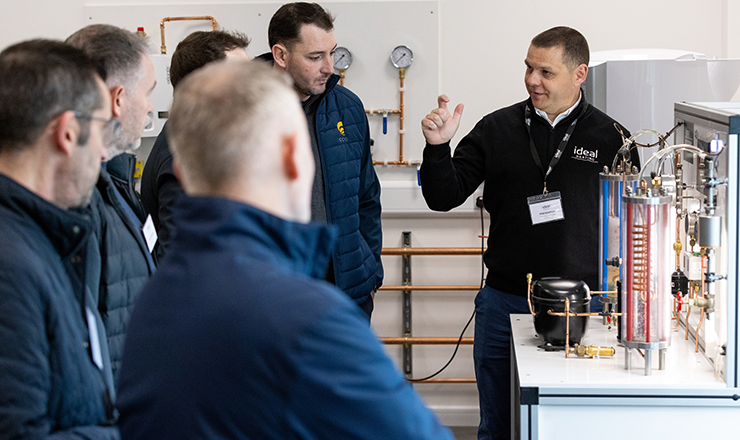
New gas engineer training is flawed, says survey
The level of training provided to gas engineer students is alarmingly inconsistent, according to research by the Gas Industry Safety Group (GISG) and IGEM.
The research was undertaken after Gas Safe Register inspection figures showed that 5 per cent of gas work from from recently qualified engineers is unsafe, up from 1 per cent, from the start of the contract.
The research consisted of in-depth interviews with newly qualified gas engineers, and included questions about the length of courses, theory and practical components in course content, assessments, industry placements and mentoring opportunities.
The research revealed that some interviewees were concerned that training had been too short, particularly for those with no prior experience. Concerns were also raised about the apparent willingness of some training establishments to keep training failing students until they passed the assessments, regardless of how many attempts were taken to gain the qualification – and with little apparent regard for the students’ ability to fulfil the essential competency requirements.
GISG and SMB chairman Chris Bielby says: “The GISG is shocked and disappointed by these research findings, as they highlight a fundamental flaw in the gas industry that ultimately could affect the safety of customers. We are specifically concerned about the discrepancy in course durations, the certifications of very short courses, the imbalance between theory and practical course content; and differences in pass and fail criteria between some training colleges.
“It is paramount that we as an industry work together to ensure high standards of gas engineer training and capability are upheld across the country. We call on the government and industry to undertake a review to establish minimum standards of training across all gas engineer training programmes.”
Ian McCluskey, head of Technical Services at IGEM, adds: “IGEM is concerned by the apparent lack of consistency in the standards of training in the industry. IGEM published IGEM/IG/1 Standards of training in gas work in 2014 and IGEM/IG/1 Supplement 1 Non-domestic training specification in 2016, covering requirements for new entrants which have not yet been implemented by the industry.”
Gas Safe Register’s Technical and Customer Services director Mark Rolfe adds: “Safe gas work depends on engineers having the correct skills and experience, and applying that competence in all the work they do – regardless of the route they have taken into the industry.
“Our focus and interest is on the quality and safety of that gas work and it is a concern for us that we are increasingly seeing work that fails to meet the required standards especially from those newly entering the industry and gaining registration. It is an issue we have raised repeatedly with the training and assessment sector and one that engineers have also raised with us through the Decade Review and other consultations we have undertaken.
“The role of the Register does not encompass training and assessment, but it is very much in our interest to see structures and processes put in place that will ensure that those who are presented to us as competent can actually do the job safely – and we will support industry in any way to help that happen.”

